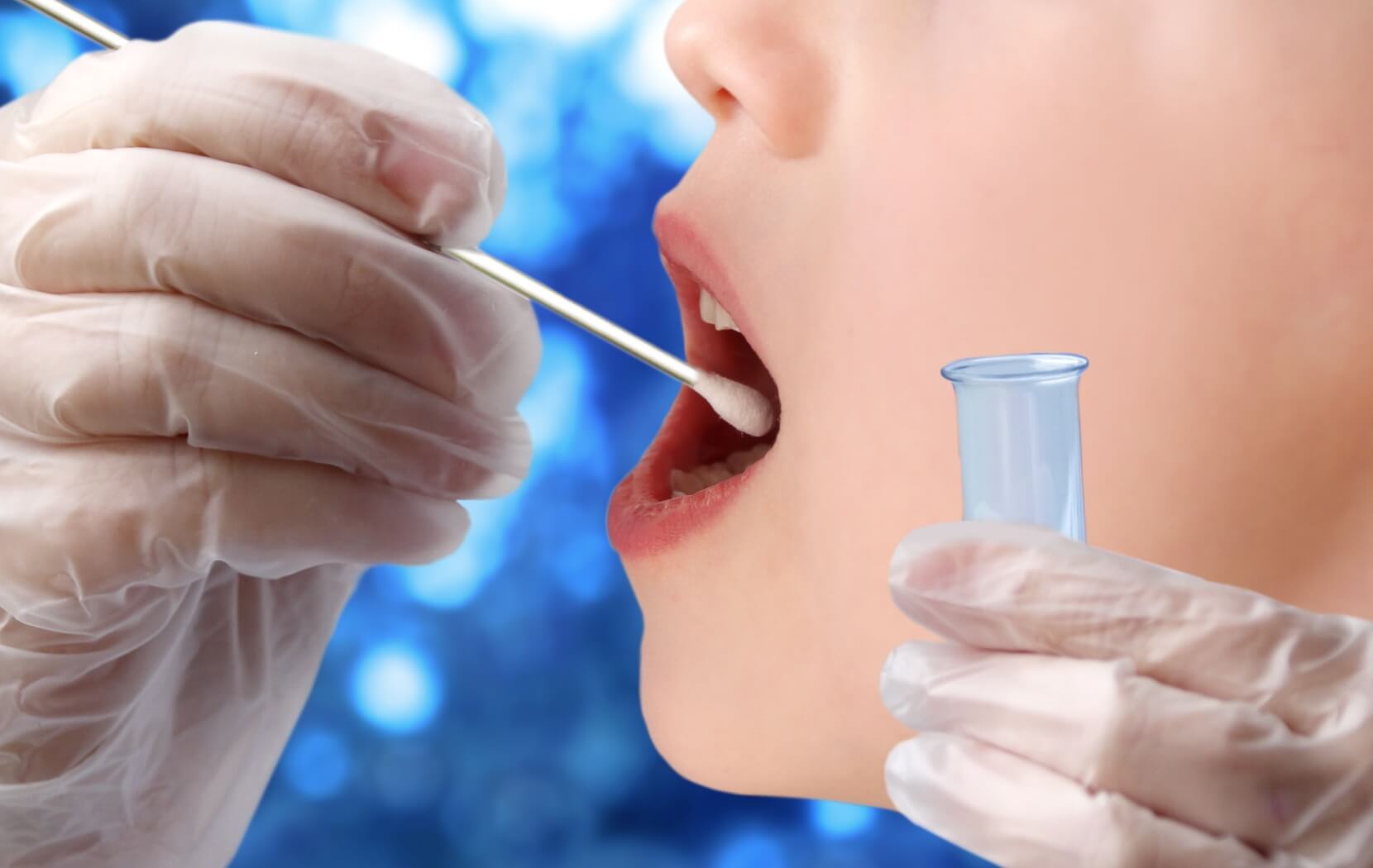What Your Saliva Can Tell You About Your Oral and Systemic Health

When was the last time you thought about your saliva? While often overlooked in regular dental exams, this remarkable fluid can offer insights into your overall well-being.
From diagnosing oral diseases to detecting underlying systemic health issues, your mouth contains a wealth of information vital to your health. For example, saliva testing can be used to identify conditions like:
- Cavities and gum disease
- Dry mouth
- Diabetes
- Cancers
- Nutritional deficiencies
- Viral and bacterial diseases
What Is Saliva?
Saliva is so much more than spit. It’s a complex combination of water, enzymes, electrolytes, mucus, and antimicrobial compounds. On a typical day, your body generates up to one litre of saliva. But why is this fluid so important?
Here are a few key functions of saliva:
- Lubricating your mouth: Saliva keeps your mouth moist, making it easier to speak, chew, and swallow.
- Protecting against decay: Saliva helps neutralize acids that can wear down tooth enamel, protecting you from cavities.
- Digesting food: Saliva contains enzymes like amylase, which kickstart digestion in your mouth.
- Defending against bacteria: Thanks to its antimicrobial properties, saliva is one of your body’s first lines of defence against infections.
What Are the Benefits of Saliva Testing?
Saliva testing involves collecting a small sample of saliva, which can be done by spitting into a sterile tube or swabbing the inside of your cheek. The collected sample is then sent to a laboratory, where it is analyzed for various biomarkers that reflect what's happening in your body.
Once analyzed, saliva testing can offer valuable insights into one's health. For example, saliva testing can help detect early signs of systemic conditions, assess immune function, or monitor stress levels through hormonal markers.
Regarding health, we should take advantage of all the information we can get. Saliva doesn’t just reflect what’s happening in your mouth it’s a well-rounded, efficient tool that connects oral care with full-body wellness.
What Saliva Tells You About Oral Health
Saliva offers a clear lens into the state of your oral health. It can reveal:
1. Cavities & Tooth Decay
If your saliva is unusually acidic, it could indicate a high risk of tooth decay. An acidic environment in your mouth erodes enamel over time, increasing the likelihood of cavities. Dentists can use saliva testing to measure pH levels and assess this risk.
2. Dry Mouth
Saliva volume matters—not just what's in it. If your salivary glands aren’t producing enough, you could experience dry mouth. This condition is also linked to bad breath, gum disease, and difficulty swallowing.
3. Gum Disease
Saliva can indicate the presence of bacteria that contribute to gum disease (periodontitis). If untreated, this condition can lead to tooth loss and is even linked to diabetes and heart disease.
What Saliva Reveals About Systemic Health
Beyond teeth and gums, saliva paints a much larger picture of your body. It can provide critical clues about systemic conditions and aid in diagnosing and assessing your systemic health. Some conditions it can help detect include:
1. Diabetes
Did you know that saliva testing can help identify early signs of diabetes? People with diabetes may have a reduced saliva flow and higher glucose levels in their saliva, leading to a higher risk of oral infections and dry mouth.
2. Stress & Hormones
Your saliva contains cortisol, a hormone associated with stress. By analyzing saliva for cortisol levels, healthcare providers can assess your stress response and even identify conditions like chronic stress or adrenal fatigue.
3. Oral Cancers
Saliva biomarkers can help detect oral cancer early, critical for successful treatment outcomes. This testing is especially valuable for high-risk individuals, such as tobacco users or those with a history of heavy alcohol consumption.
4. Viral & Bacterial Diseases
Saliva testing has been useful for detecting infections like COVID-19, mononucleosis, and even hepatitis. Early detection means these conditions can be detected before symptoms arise, leading to earlier treatment and potentially better outcomes.
5. Nutritional Deficiencies
Certain nutritional deficiencies, like low vitamin C or iron, can be detected in saliva testing. For example, an iron deficiency can lead to burning mouth syndrome, while vitamin C deficiency can contribute to gum issues. Identifying nutritional deficiencies allows us to make healthier dietary choices.

Take Control of Your Oral & Systemic Health
Here are some steps you can take to take care of your oral health if saliva testing reveals any issues with your oral health.
- Regular visits to your dentist and primary care physician can help monitor your health using tools like saliva testing.
- Maintain oral hygiene by brushing twice a day, flossing, and using mouthwash.
- Proper hydration ensures optimal saliva production.
- Limit sugar and acidic foods, while incorporating nutritious, whole-food options to keep the pH of your saliva balanced.
- Monitor changes in your saliva. Persistent dryness or an unusual taste could signal an underlying issue. Don’t ignore the signs—seek guidance from a professional.
A Healthier Mouth, A Healthier You
Your saliva is more than just a facilitator of speech or digestion; it mirrors your health. By understanding the messages it sends, big and small, you can catch warning signs early and take proactive steps to improve your oral and systemic well-being.
At Springbank Dental Centre, we offer Oravital Saliva analysis to help you maintain good overall and oral health. Book an appointment today or contact us for more information.